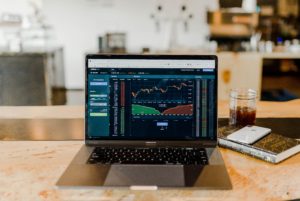Many of my new clients are people who have managed their own money in the past, but they seem to reach a point in their lives that compels them to make a change. Sometimes they tell me that it’s just not fun anymore, or that they do not want to spend the time required to do a good job. The overwhelming reason is that they believe that their stock choices have been more wrong than right.
While I do understand what they are saying, it is probably not accurate. Most people make good choices for much of their money. Now, anyone who buys equities (stock) will buy something that does not go their way. That’s a fact. The main difference between the DIY crowd (retail traders), and a professional trader or portfolio manager is that we manage our trade size and attempt to work our way out of bad positions with options techniques, adjusting trade size or just cutting losses. At a minimum we may try to use some losses against gains in a taxable account. It is not always successful, but at a minimum we attempt to do something to repair the trade. The DIY retail trader typically allows a bad trade to sit in hopes that it may transform itself into a good one. The same mentality must be applied to protecting profits. Again, a professional may use covered calls (options) when the market or stock is looking “toppy” to take a bit of profit. You can buy insurance with “Puts” on a stock or index. It all takes work and knowledge of these instruments, but it can make the difference in having the equity markets work for you or not.
Low priced stock or non-liquid stocks can be your biggest winners and losers. Assuming that the risk is acceptable, and you’ve invested money that you can afford to lose, then I wish you luck! If you are investing money that you should have invested in income producing investments to fund your lifestyle, then you are jeopardizing your lifestyle, or even worse your families well-being, and that money should have been in fixed income anyway.
You can also use option strategies for income and to attempt to repair a position where you may be underwater. These techniques can appear to be complicated, but are not with proper training, practice and taking the time to do the work. Typically a retail broker or financial advisor will not use these strategies because it does take time and training that these “advisors”, working for the broker-dealers, do not possess. This is one reason why mutual funds are so popular in their world.
In summary, if you have a good trade discipline and good knowledge of the equity and derivatives markets, maybe work with your own money. If you don’t possess this knowledge or feel that your emotions would be a detriment to your trading strategies, then find a professional that actively works with the money, not a salesperson!



























